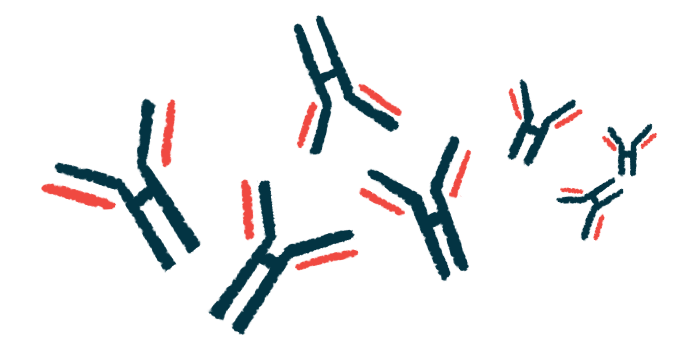SAB develops unique therapeutic antibodies to treat NMOSD
Created without human donors, antibodies could also be used in lupus, diabetes

SAB Biotherapeutics has developed therapeutic antibodies — without the need for human donors — that can neutralize self-reactive antibodies associated with autoimmune diseases, such as neuromyelitis optica spectrum disorder (NMOSD).
Working in collaboration with CSL Behring, a partnership established in 2020, SAB used its DiversitAb platform to generate a diverse array of functional human anti-idiotype polyclonal antibodies — which are highly specialized antibodies that bind to multiple disease-related antibodies at multiple sites, blocking their activity.
“The promising results from this platform capabilities project are an important step in developing a scalable, effective and fully-human anti-idiotype therapeutic for people living with autoimmune disorders that are in need of treatment options,” Eddie Sullivan, PhD, co-founder, president, and CEO of SAB, said in a company press release.
Self-reactive antibodies, called autoantibodies, are proteins produced by the immune system that mistakenly target the body’s own organs and tissues, leading to various autoimmune diseases.
In NMOSD, autoantibodies attack cells of the central nervous system, comprised of the brain and spinal cord. In about 70% of NMOSD patients, autoantibodies selectively target aquaporin-4 (AQP4), a protein found on cells that support nerve cells called astrocytes.
“As the scientific community begins to better understand the varying and complex nature of autoimmune disorders, it is important we research and develop therapies to provide robust efficacy against multiple autoantibodies driving an autoimmune disease,” said Alexandra Kropotova, MD, SAB’s chief medical officer.
SAB’s DiversitAb platform uses genetic engineering and antibody science to develop Transchromosomic Bovine — modified cows that can rapidly produce large quantities of human-targeted antibodies compared with humans or smaller animals. Following immunization, blood from the cows is collected regularly, and the therapeutic antibodies are then purified for use in the clinic.
Therapeutic antibodies bind, neutralize NMOSD-associated autoantibody
According to SAB, their platform successfully produced therapeutic antibodies that bind and neutralize an NMOSD-associated autoantibody in the test tube (in vitro) and in living animals (in vivo), without suppressing the immune system.
“The unique capabilities of our transchromosomic cows and DiversitAb platform continue to prove the power of polyclonals to address complex and very difficult to treat autoimmune diseases,” Sullivan said.
In addition to NMOSD, these therapeutic antibodies can potentially treat a wide range of autoimmune diseases, including lupus and type 1 diabetes.
Kropotova added: “Often, multiple autoantibodies are responsible for an autoimmune response, and our DiversitAb platform has proven its ability to create an ‘antidote’ antibody treatment that can ‘disarm’ those harmful autoantibodies without a broad immunosuppressive effect — having implications across a wide variety of autoimmune diseases.”






